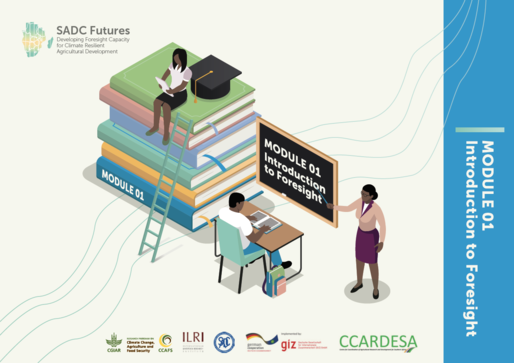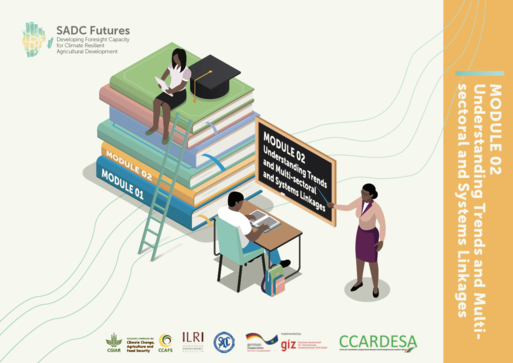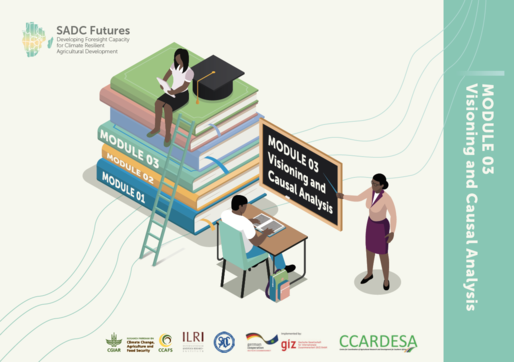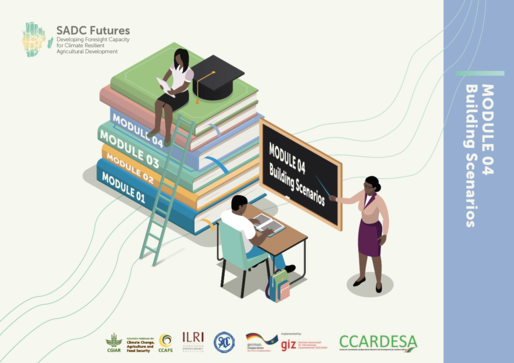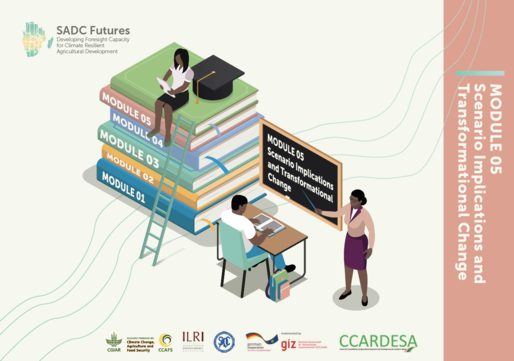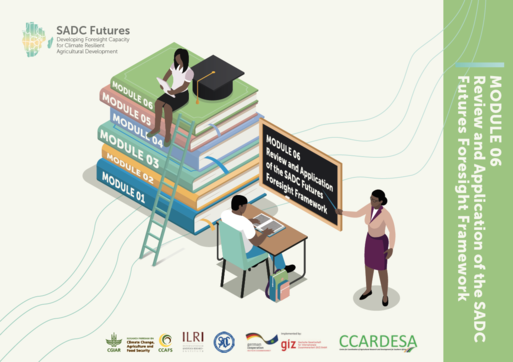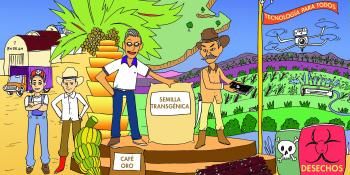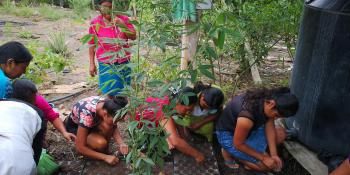Better foresight for climate resilience: New e-learning course and toolkit launched
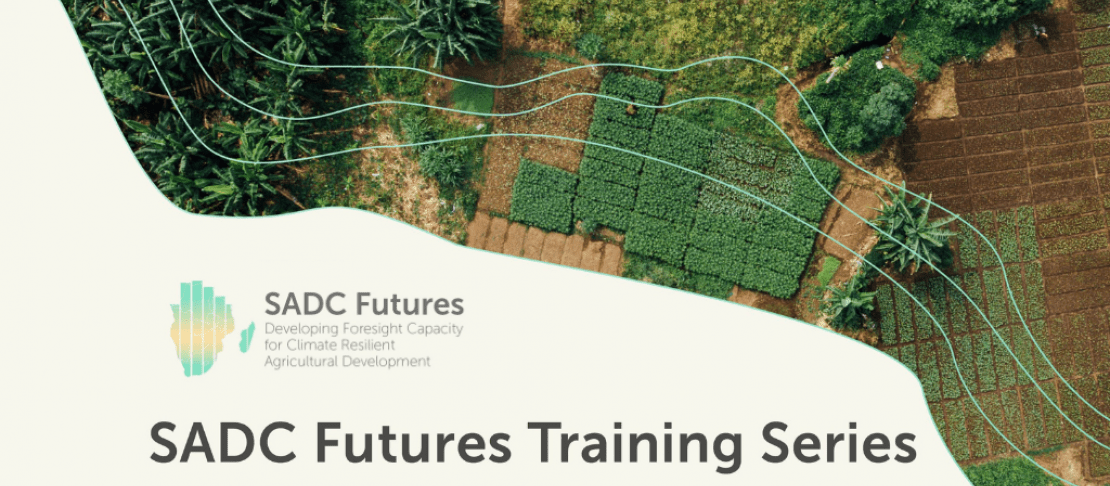
A new e-learning course has been launched by the SADC Futures project* to promote climate-resilient agricultural development. The e-learning course comes after a 6-part webinar series, and is designed to be engaging, fun and convenient for your busy schedule. The course is meant as a training for those interested in the topic, and want to learn the skills they need for better foresight of the needs of climate-smart agriculture in years to come.
Better foresight means plans, policies and programs can be adapted to respond to the foreseeable effects of climate change, across the entire African continent and beyond. The Southern African Development Community (SADC) region is fundamentally dependent on a resilient agricultural system and natural resources, like so many regions across Africa. Climate change poses a great challenge to this resilience, so there is urgent need to build the technical capacity to make those who work in the Southern African agriculture more resilient to climate change, and help to minimize its effects on food security and livelihoods.
Why foresight is so important
Foresight is not a prediction of the future, as is commonly assumed, but rather a process of imagining different possible futures and thinking through their potential consequences. Foresight empowers decision-makers and policy planners to apply new ways of thinking about, talking about, and implementing their plans as the future itself unfolds before their very eyes.
At the heart of foresight is the empowering idea that the future is still in the making and can be actively influenced or even created. The SADC Futures project developed a tailored foresight training program built on seven key stages—each with accompanying steps, tools and methods:
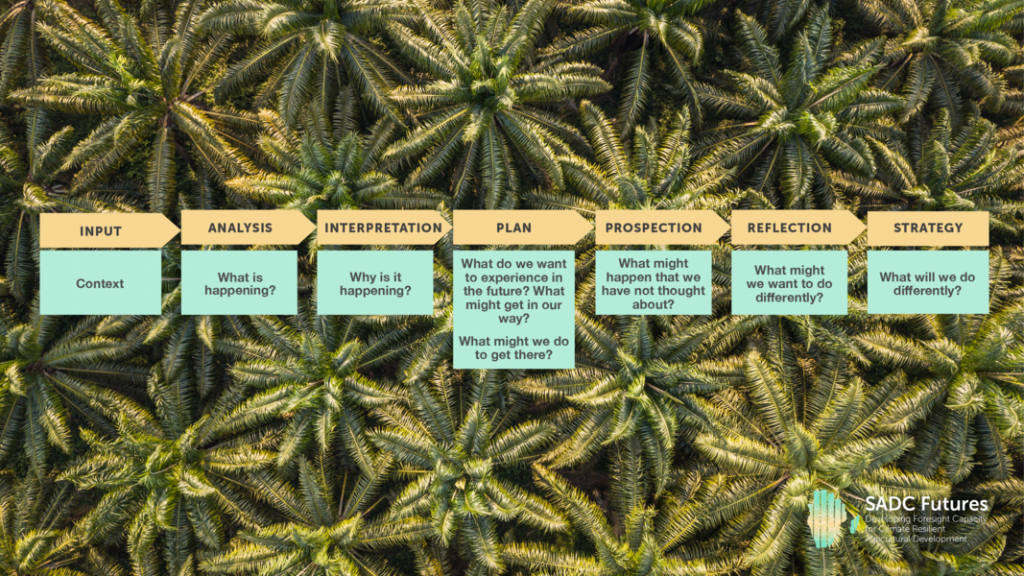
The e-learning course
The SADC Futures e-learning course will equip you with some basic tools needed to apply foresight methods in your own unique context. The course is broken down into seven modules, according to the seven key stages. Each module will take approximately 20 minutes to complete, with the entire course taking two and a half hours in total. You will receive a certificate at the end once you have completed the course.
SADC Futures Foresight Training Toolkit
The e-learning course is supplemented by the SADC Futures Foresight Training Toolkit that provides accessible training to multiple stakeholders on key foresight methods and how and when to apply them. Each foresight method or tool is broken down into a series of steps so that the process can be replicated where needed. One of the key aspects of foresight is developing a mindset in thinking about the future and so the toolkit equips users with case studies, probing questions and examples that are highlighted throughout the toolkit.
Supplementary materials
The suite of offerings under the SADC Futures project is designed for regional and national government, civil society, research and private sector partners aligned to agriculture, food systems and climate change across the SADC region. Other key stakeholders include policymakers and technical officers and representatives of farmers’ organizations, media, academia, advisory services, women and youth-focused organizations as well as potential financiers and development partners.
We’ve developed a range of useful resource documents associated with the foresight training series, including policy briefs and several reports, for those interested in diving into foresight for climate resilience. We hope the training resources will also be useful for anybody working at policy level in relation to foresight and scenario in other regions across Africa.
Read more:
- CCARDESA blog: SADC Futures Winds up its Six Foresight Training Webinars Series
- Website: SADC Futures project
- Website: SADC Futures e-learning course
- Website: SADC Futures further resources
- SADC Futures Foresight Training Toolkit:
Module 2: Understanding Trends and Multi-sectoral and Systems Linkages | ||
Module 6: Review and Application of the SADC Futures Foresight Framework |
Download the full toolkit from Dropbox: bit.ly/SADCFuturesToolkit
* The SADC Futures project is a joint initiative of the SADC Secretariat’s Food, Agriculture and Natural Resources (FANR) Directorate, the Centre for Coordination of Agricultural Research and Development for Southern Africa (CCARDESA), the International Livestock Research Institute (ILRI) through the CGIAR Research Program on Climate Change, Agriculture and Food Security (CCAFS) and German Development Cooperation facilitated through the SADC / Deutsche Gesellschaft fur Internationale Zusammenarbeit (GIZ) GmbH ‘Adaptation to Climate Change in Rural Areas’ programme (ACCRA), funded by the German Federal Ministry for Economic Cooperation and Development (BMZ).



